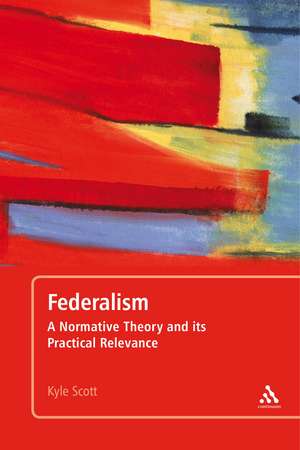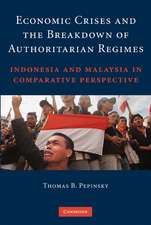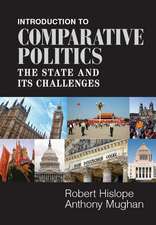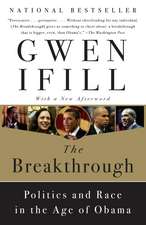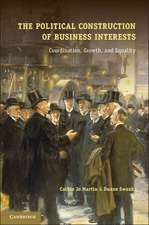Federalism: A Normative Theory and its Practical Relevance
Autor Dr Kyle Scotten Limba Engleză Paperback – iun 2011
| Toate formatele și edițiile | Preț | Express |
|---|---|---|
| Paperback (1) | 237.75 lei 6-8 săpt. | |
| Bloomsbury Publishing – iun 2011 | 237.75 lei 6-8 săpt. | |
| Hardback (1) | 714.51 lei 6-8 săpt. | |
| Bloomsbury Publishing – iun 2011 | 714.51 lei 6-8 săpt. |
Preț: 237.75 lei
Preț vechi: 273.34 lei
-13% Nou
Puncte Express: 357
Preț estimativ în valută:
45.50€ • 49.41$ • 38.22£
45.50€ • 49.41$ • 38.22£
Carte tipărită la comandă
Livrare economică 22 aprilie-06 mai
Preluare comenzi: 021 569.72.76
Specificații
ISBN-13: 9781441177148
ISBN-10: 1441177140
Pagini: 224
Dimensiuni: 170 x 235 x 20 mm
Greutate: 0.36 kg
Ediția:New.
Editura: Bloomsbury Publishing
Colecția Continuum
Locul publicării:New York, United States
ISBN-10: 1441177140
Pagini: 224
Dimensiuni: 170 x 235 x 20 mm
Greutate: 0.36 kg
Ediția:New.
Editura: Bloomsbury Publishing
Colecția Continuum
Locul publicării:New York, United States
Caracteristici
Shows how the principles of federalism can meet theoretical and practical demands of deliberative democracy.
Notă biografică
Kyle Scott is a Lecturer in the Department of Political Science at the University of Houston, USA. He is the author of several journal articles and books, including Dismantling American Common Law (Lexington Books, 2008) and Federalism (Continuum, 2011).
Cuprins
Preface
Introduction
1. Beginning a Theory of Federalism
Drawing on Great Minds
Modernity
Deliberative Democracy
Conclusion
2. Saving Federalism from Relativism
Plato
Montesquieu
Why this is not Relativism
Conclusion
3. Resituating Sovereignty
Federalism and the State
Sovereign Immunity
Locke's Rejection of Sovereign Immunity
Judicial Review
Conclusion
4. Nullification
Examples of Nullification
A Possible Framework
Civil Society, Deliberative Democracy and Federalism
Overcoming the Proceduralist vs. Substantivist Debate in Democratic Theory
Conclusion
5. Veto
Defending and Defining Veto
Deliberation through Veto
General Outline for Veto
On Religious Freedom in the U.S.: The Insufficiency of the Courts
Sri Lanka: Veto and Conflict Resolution
Conclusion
6. Secession
Legitimizing Secession with Locke
Examples of Secession: The Former Soviet Union, Ethiopia, Belgium
Secession: The Procedure
Conclusion
7. Exiting the Echo Chamber
John C. Calhoun
Polarization, Participation, Deliberation
Israel and Iraq
Conclusion
Bibliography
Introduction
1. Beginning a Theory of Federalism
Drawing on Great Minds
Modernity
Deliberative Democracy
Conclusion
2. Saving Federalism from Relativism
Plato
Montesquieu
Why this is not Relativism
Conclusion
3. Resituating Sovereignty
Federalism and the State
Sovereign Immunity
Locke's Rejection of Sovereign Immunity
Judicial Review
Conclusion
4. Nullification
Examples of Nullification
A Possible Framework
Civil Society, Deliberative Democracy and Federalism
Overcoming the Proceduralist vs. Substantivist Debate in Democratic Theory
Conclusion
5. Veto
Defending and Defining Veto
Deliberation through Veto
General Outline for Veto
On Religious Freedom in the U.S.: The Insufficiency of the Courts
Sri Lanka: Veto and Conflict Resolution
Conclusion
6. Secession
Legitimizing Secession with Locke
Examples of Secession: The Former Soviet Union, Ethiopia, Belgium
Secession: The Procedure
Conclusion
7. Exiting the Echo Chamber
John C. Calhoun
Polarization, Participation, Deliberation
Israel and Iraq
Conclusion
Bibliography
Recenzii
Author Kyle Scott has published two new op-eds: "Why Democrats Will Never Have a Permanent Advantage in American Politics" on FoxNews.com and: "Day 1 of the Libyan Experiment" on Reuters.
This is a useful contribution to discussions of federalism...
Federalism: A Normative Theory and Its Practical Relevance is an innovative attempt to defend federalism as a desirable institutional form for contemporary democracies by means of a tightly argued, coherent normative theory, which is applied to case studies of conflict resolution around the world. Welding a communitarian theory of human teleology to commonly accepted empirical generalizations about democratic politics, author Kyle Scott makes a strong case that the decentralized governance characteristic of federalism can allow politics to operate at a "human scale" while facilitating constructive deliberation. Scott sees the polity as an organic whole, in sharp contrast to most contemporary liberals and libertarians. Unlike utilitarians, he does not defend federalism principally on its economic advantages. Instead, Scott argues that human flourishing is possible only when citizens participate actively in the governance of a community of shared customs and intimate familiarity, and that proper skepticism of the efficacy of uniform schemes for human improvement should lead us to appreciate the diverse experimentation characteristic of robust autonomy for a large number of political jurisdictions. The implications of these assumptions are truly radical, for the demanding kind of self-government that Scott - like Althusius, Aristotle, and Tocqueville - endorses requires very small jurisdictions and a very high degree of decentralization. Scott also argues in favor of a trinity of powers that local jurisdictions may use in extremis: nullification, veto, and secession. The reasoning is that these powers require the central government to deliberate with local governments on the most appropriate means to shared ends. Moreover, small scale allows deliberation to happen within local governments among citizens, who directly participate in making policy decisions.The federalism Scott defends is thus an ideal type to which no actual federal system, even the Swiss, currently conforms. If he is right, those of us who are liberal democrats in the broad sense must work toward radical reforms in our constitutional frameworks. While the book's proposals are radical and destined to be controversial, its readers will certainly have to grapple with its trenchant critiques of the modern liberal state. -Dr. Jason Sorens, Assistant Professor, Deptartment of Political Science, University at Buffalo, SUNY.
Author wrote an Op-Ed in Duluth News Tribune on March 6 about Wisconsin's union situation.
Recommended.
This is a useful contribution to discussions of federalism...
Federalism: A Normative Theory and Its Practical Relevance is an innovative attempt to defend federalism as a desirable institutional form for contemporary democracies by means of a tightly argued, coherent normative theory, which is applied to case studies of conflict resolution around the world. Welding a communitarian theory of human teleology to commonly accepted empirical generalizations about democratic politics, author Kyle Scott makes a strong case that the decentralized governance characteristic of federalism can allow politics to operate at a "human scale" while facilitating constructive deliberation. Scott sees the polity as an organic whole, in sharp contrast to most contemporary liberals and libertarians. Unlike utilitarians, he does not defend federalism principally on its economic advantages. Instead, Scott argues that human flourishing is possible only when citizens participate actively in the governance of a community of shared customs and intimate familiarity, and that proper skepticism of the efficacy of uniform schemes for human improvement should lead us to appreciate the diverse experimentation characteristic of robust autonomy for a large number of political jurisdictions. The implications of these assumptions are truly radical, for the demanding kind of self-government that Scott - like Althusius, Aristotle, and Tocqueville - endorses requires very small jurisdictions and a very high degree of decentralization. Scott also argues in favor of a trinity of powers that local jurisdictions may use in extremis: nullification, veto, and secession. The reasoning is that these powers require the central government to deliberate with local governments on the most appropriate means to shared ends. Moreover, small scale allows deliberation to happen within local governments among citizens, who directly participate in making policy decisions.The federalism Scott defends is thus an ideal type to which no actual federal system, even the Swiss, currently conforms. If he is right, those of us who are liberal democrats in the broad sense must work toward radical reforms in our constitutional frameworks. While the book's proposals are radical and destined to be controversial, its readers will certainly have to grapple with its trenchant critiques of the modern liberal state. -Dr. Jason Sorens, Assistant Professor, Deptartment of Political Science, University at Buffalo, SUNY.
Author wrote an Op-Ed in Duluth News Tribune on March 6 about Wisconsin's union situation.
Recommended.
